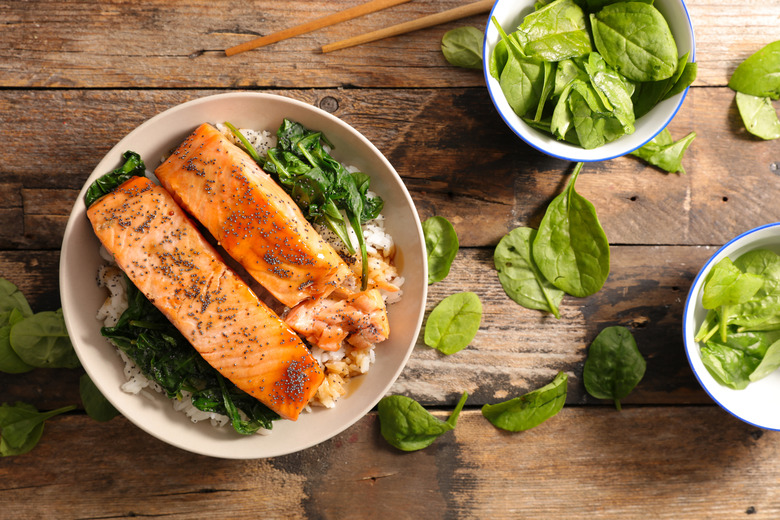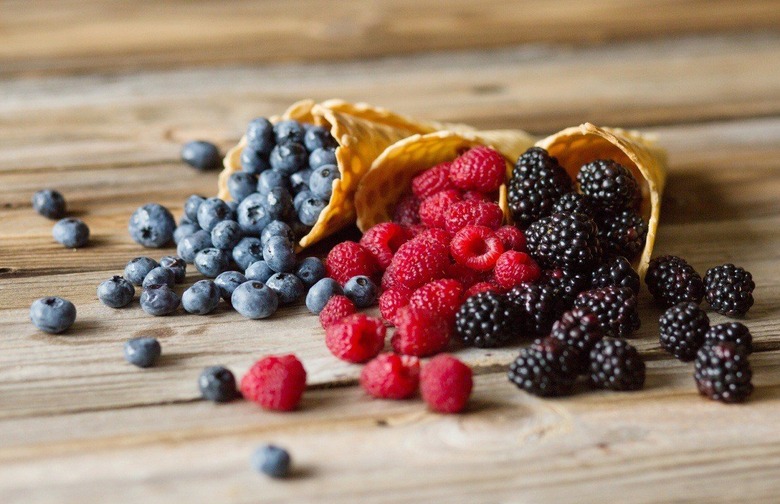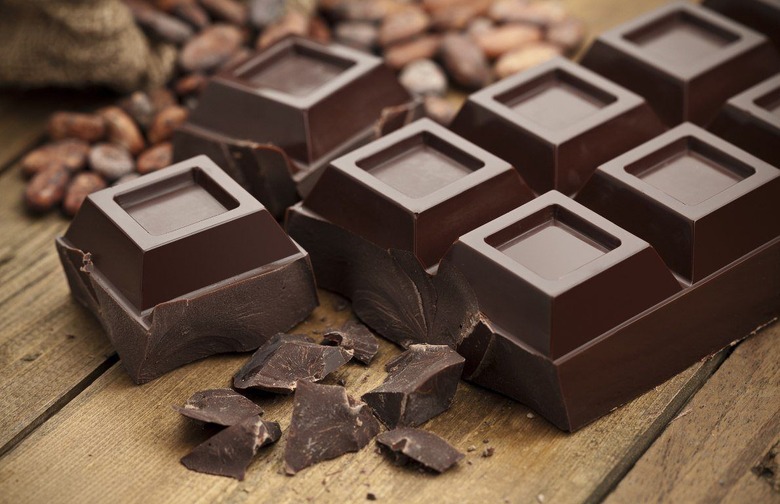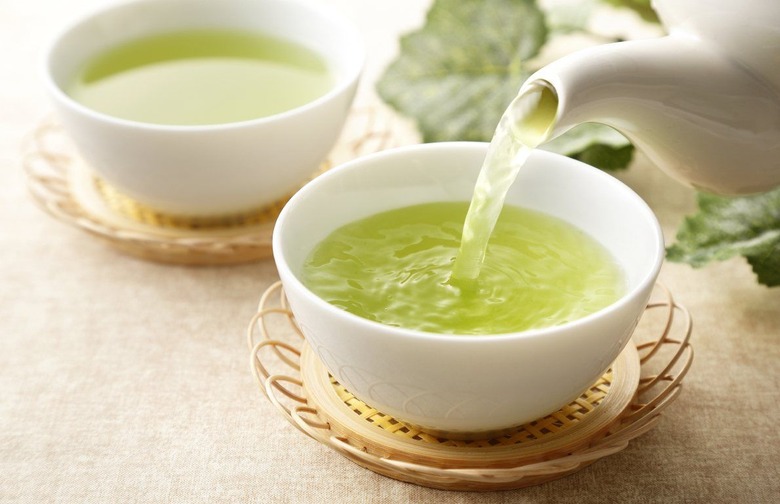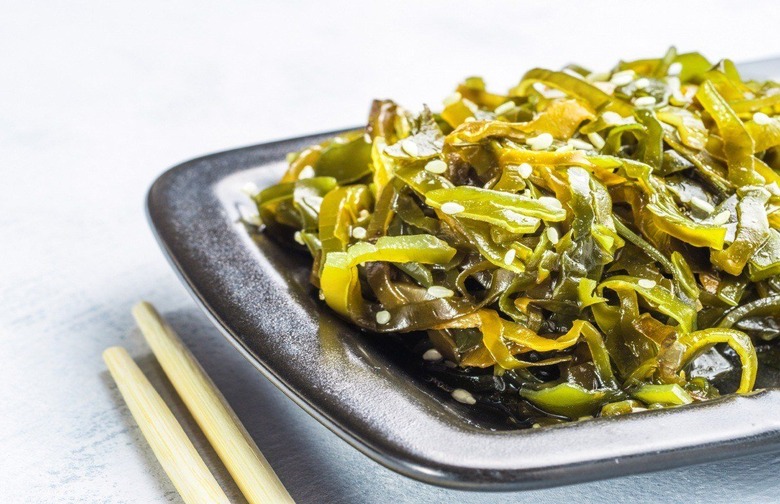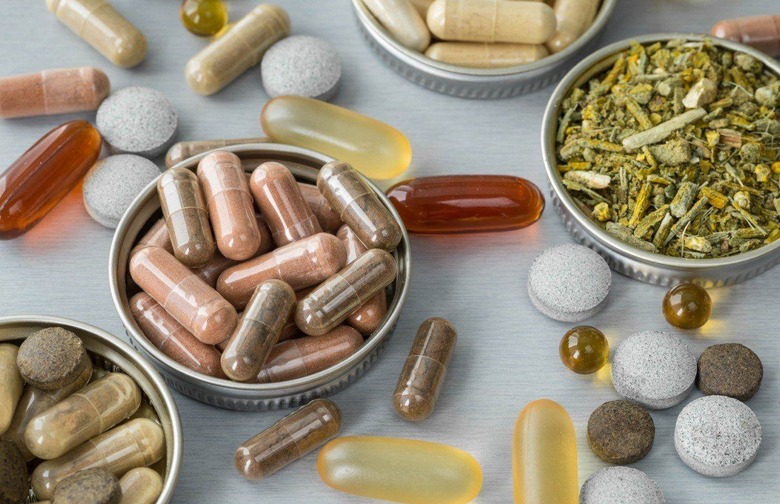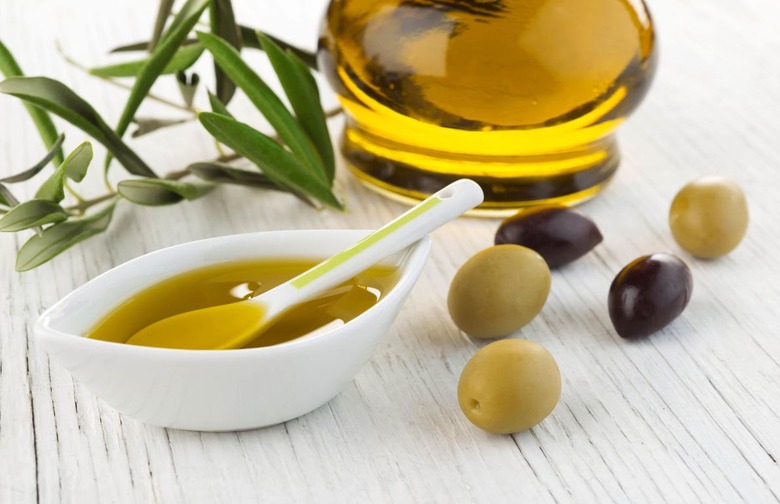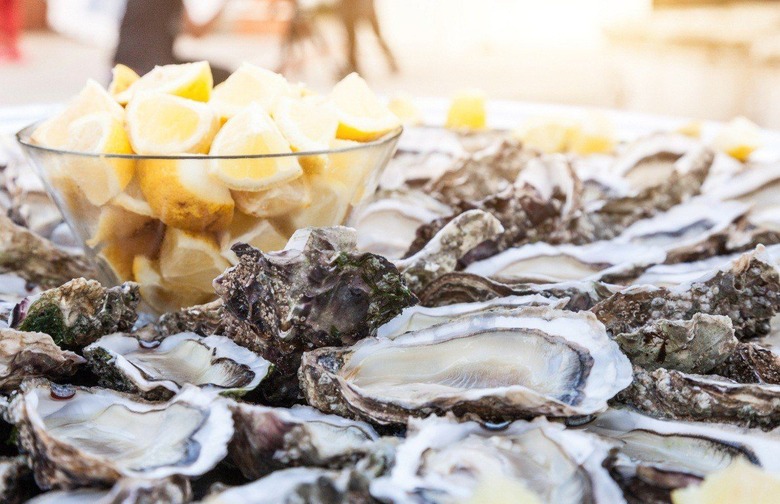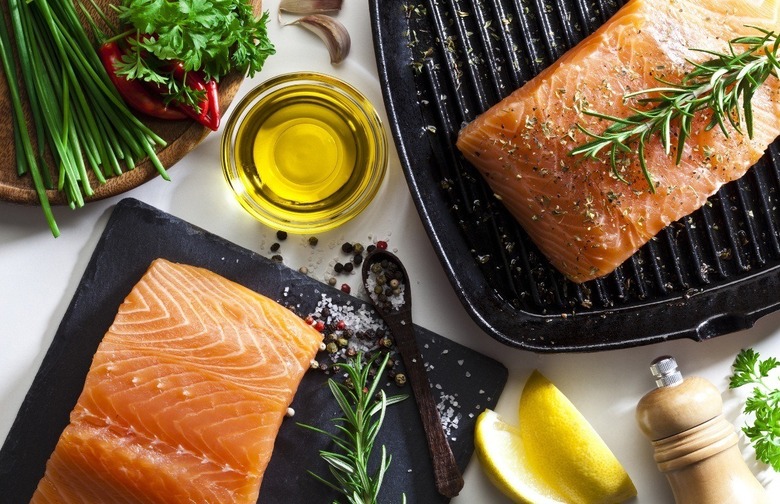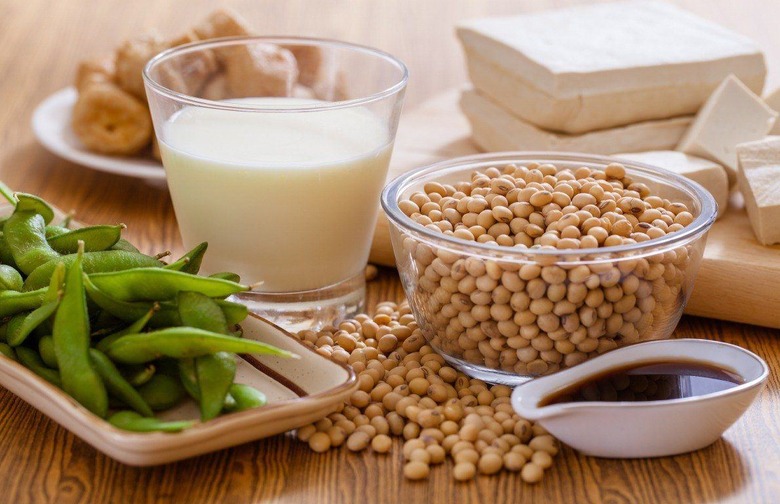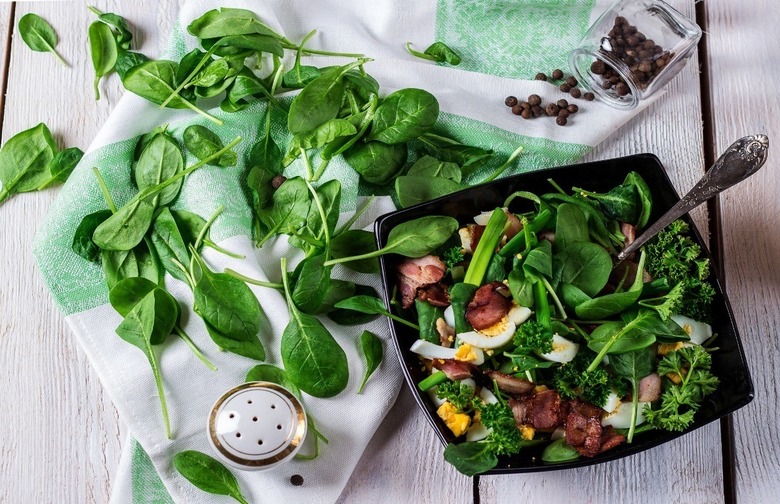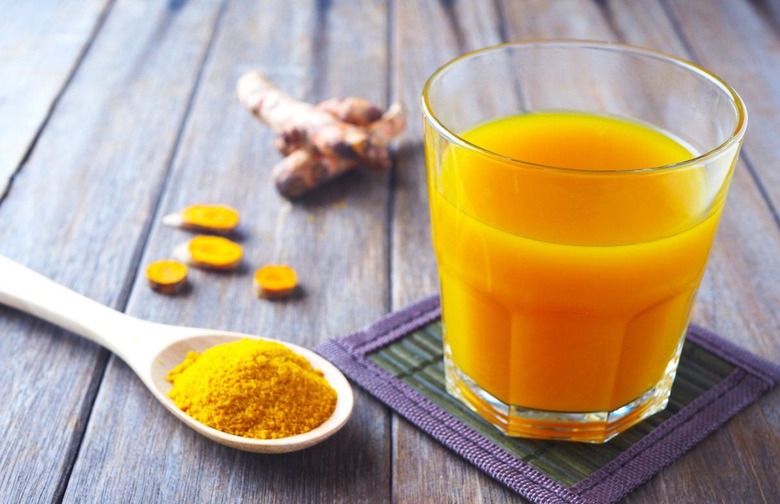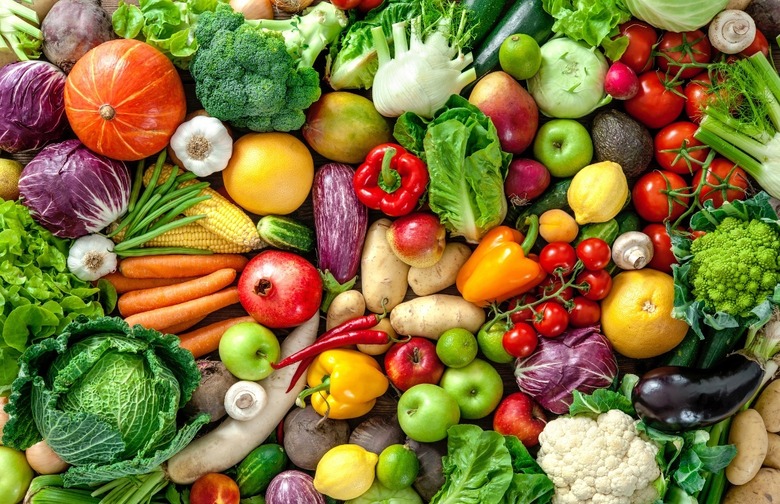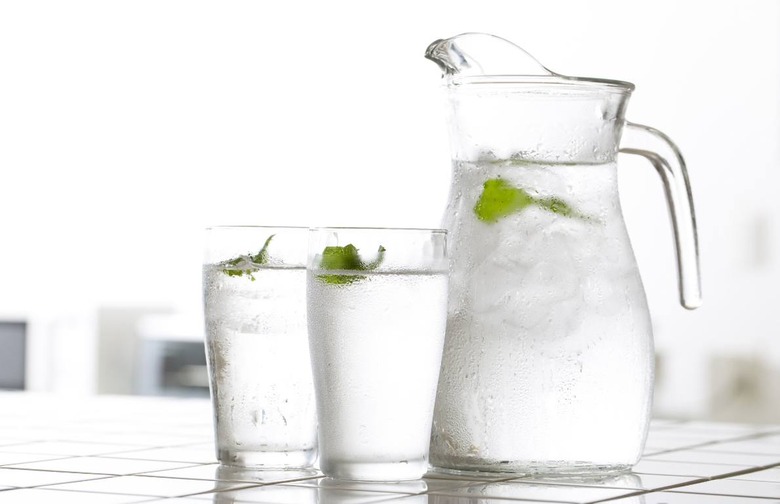These 15 Foods May Prevent Alzheimer's
Neurologists often say that diet plays a large role in maintaining brain health as you age. People may think that there isn't much they can do to preserve their brain health; but luckily, there are some steps you can take.
Alzheimer's doesn't only affect the elderly population — this is a common misconception, which some recent books and movies (such as 2014's "Still Alice") have tried to combat with brutally honest accounts of day-to-day life with the disease and heart-wrenching scenes involving friends and family. The effects of the disease range from memory loss to a complete mental decline. At the moment, there is no known cure.
So it's good news that there may be something you can do to reduce your risk. According to the Alzheimer's Association, Alzheimer's is the sixth leading cause of death in the United States. To help stave off the deadly degenerative disease, try incorporating these foods into your diet. Not only do they assist with preserving brain function, a number of them also provide additional health benefits.
Berries
Berries — especially blueberries and strawberries — are rich in anthocyanin. This compound works to protect the brain from damage done by free radicals. A buildup of free radicals in the brain has been linked to memory loss and a decline in brain function.
Champagne
One study conducted in 2013 linked the consumption of three glasses of Champagne every day to an increase in phenolics. These compounds assist the brain in memory storage and learning. While only certain types of Champagne contain the compounds, who could object to adding more Champagne to their lives?
Coffee
It might be worth the jitters. Sure, coffee could raise your blood pressure, but it also could effectively stave off Alzheimer's disease. Researchers at the University of South Florida discovered that people over 65 years old who drank coffee didn't develop Alzheimer's disease for two to four years after participants who refrained.
Dark Chocolate
Oh, dark chocolate — the benefits never end. This rich treat contains flavonoids, which have been shown to slow the effects of dementia. In one study, participants who ate large amounts of dark chocolate showed higher levels of cognitive functioning than those who did not. Add a square or two to your routine — it could help your brain and sate your dessert cravings.
Green Tea
Drinking green tea regularly has been linked to an increase in alertness and a decrease in the speed of aging. A healthy alternative to coffee, green tea is a great way to get your daily dose of caffeine while maintaining a low and healthy blood pressure.
Kelp
Yes, people eat this stuff. And it might be a good idea for you to start, too! Kelp is rich in antioxidants such as carotenoids, flavonoids, and alkaloids, which work to fight free radicals in the brain. Various studies have also linked kelp to a decreased cancer risk—so throw your skepticism to the side and go for it. Whether you add it to your smoothies or your salads, the benefits seem promising.
Multivitamins
According to the Alzheimer's Research and Prevention Foundation, "If you're serious about the prevention of Alzheimer's and improving memory loss, you should definitely take a high-potency multiple vitamin and mineral capsule." Folic acid, vitamin C, and vitamin E are a few among a long list of vitamins and minerals that have been shown to aid in Alzheimer's prevention.
Olive Oil
Recent studies revealed that olive oil was effective in preserving memory and cognitive function. The Italian cooking classic assists the brain to clear debris and toxins, protecting cells from damage. Maybe the Mediterranean dieters are onto something, after all.
Oysters
These shellfish have the highest zinc concentration of any other food. Zinc, a relatively uncommon mineral, helps to stave off degenerative dementia and Alzheimer's disease. Zinc can also boost immunity, prevent cancer, and result in various other health benefits.
Oysters are also an underrated source of protein — a much classier alternative to your typical seafood dinners.
Salmon
Alzheimer's is associated with the protein beta-amyloid. Omega-3's, such as the ones found in heart-healthy salmon, can actually lower the concentration of beta-amyloid in the bloodstream. Salmon can pile on numerous other health benefits, as well (and just so happens to pair phenomenally with spring veggies and lemon).
Soy
Soy is high in vitamin B-12, which not only keeps your red blood cells healthy, but is also the principal vitamin for aiding the nervous system. The better your nervous system functions, the less likely you are to experience brain damage and degeneration.
Red meat has been connected to an earlier development of Alzheimer's, and soy-based protein provides an excellent vegan alternative. To keep your blood pressure low and your brain intact, skip the steak once in a while and eat a tasty tofu dinner instead.
Spinach
This leafy green is loaded with antioxidants, fiber, and vitamin C — all three of which have been linked to a decrease in the prevalence of Alzheimer's. With the benefits ranging from increased brain cognition to lowering cholesterol, you really can't go wrong with adding as much spinach as you can to your diet.
Turmeric
Don't let the bright orange tint of this spice scare you away. Increasingly, studies have been highlighting turmeric's various health benefits, and one study in particular showed that turmeric's signature chemical component, curcumin, can help prevent Alzheimer's. Turmeric has been used in sweet recipes, spicy curries, and even sprinkled over roasted vegetables. No matter how you use it, the spice may help your immune system remove damaging plaque from your brain.
Variety of Fruits and Vegetables
If you're shaky on vitamins and minerals, it's been proven time and time again that fruits and veggies are the way to go. To maximize the antioxidants, vitamins, and minerals you're getting day to day, load up on plants at every meal.
A common nutrition tip is to eat the rainbow — seriously, the more colors you eat, the better.
Water
Drinking lots of the world's healthiest beverage is a good idea for more reasons than just to boost brain health. But the classic compound is extremely beneficial to your brain because it helps your blood circulate and flush toxins from your system. Buildup in your nervous system can cause an increase in memory loss and a decrease in brain function.
Have you heard that wine can help, too? Read about some serious health benefits of red wine here.
The introduction of this story was updated to remove phrasing that some readers may have found insensitive.
More From The Daily Meal:
These Are the Foods Neurologists Eat for Brain Health
17 Foods Every Man Should Eat at Least Once a Week
Surprising Reasons You Should Eat More Fat
